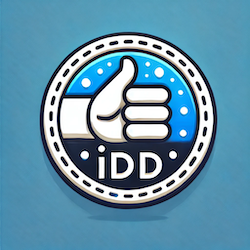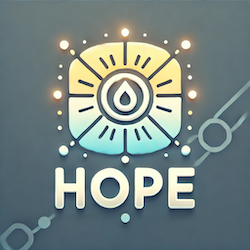What is the future of Hive?
This is a question that many have. Over the years, a lot of people have watched the market action pertaining to this blockchain, leading to negative sentiments. Since the market doesn't realize the potential, the mindset it nothing is happening.
Hive was formed as a social media (blogging) chain. The idea was to create Medium or Reddit type activity. It was a concept that made sense in a Web 2.0 world, where centralization is the norm.
Perhaps ahead of its time, the idea of censorship resistant text storage will play an important role in society. Today, we see governments censoring by putting pressure on social media companies. We also see decades worth of data vanishing (like with MTVnews) as corporate entities decide to shut the sites down.
Then we have Internet archives, which is coming under fire for selling some books, thrusting it into copyright disputes. That is another entity that relies upon someone paying the server bill to protect the data.
It is crucial for humanity to understand its digital history can disappear in a moment. all of Wikipedia, as an example, could vanish in a second.
This is another reason why the democratization of data is crucial.

Hive in an AI World
The world completely changed on November 30, 2022. That was the day OpenAi released the frontend for ChatGPT. Since that time, generative AI moved into general conversation.
Data importance did not change that day. However, since that time, we are becoming more aware of how important this is. Data is the new oil takes on different meaning when dealing with AI models and training.
Hive can play an important role here. The fact that we have a permissionless, text database that has no direct transaction fees (the cost to write to the chain is an investment rather than an expense) sets it apart. While AI development is going multimodal, text still plays a crucial role.
In my view, the database has dual purpose.
- Here we see a recording of human history. Everything that is posted is immutable. The Hive network cannot disappear with the flip of a switch. Instead, there are over 100 unrelated servers that house the database. Being open source, anyone is free to run a node with the software (and data) on it. This protects us against the rewriting of history and the censorship which is becoming commonplace today.
- Anyone is free to set up an API and pull the data from the database. The democratization of data means that we are making it available to anyone. Think of it as a communal database...the people's database if you will.
It is with the second where the magic can truly begin.
Vector databases
We often discuss the idea of vector databases. This is what is commonly used for AI models.
Without going into too many details, these are design to handle unstructured data (which social media) and correlate it in manner that advances beyond keyword association.
Vector databases use mathematical assignments to plot data in vectors. It is through the positions of these vectors to each other which provides the output.
They are designed to recall data quickly and efficiently. Whatever is fed in is indexed and embedded. For text, this can be based upon a word, sentence, or entire document. A numerical string (similar to a Bitcoin address) is associated with each, then configured within the larger vectors.
This is not part of Hive but, rather, what developers build using the Hive data.
From here, models can be designed, decentralizing AI. Instead of having Google, Meta, and X control everything, data can be utilized by anyone with the compute. AI generation requires compute, data, and algorithms. The challenge is, without data, the other two are useless.
Hive solves this problem.
Social Media as a Path
Social media is no longer a destination.
We will use Meta, which is the best example of this. Right now, Meta is a $1.5 trillion company by market capitalization. We could say this is mostly from the social media applications it created. The revenue stream for this company is based upon advertising relating to Facebook and Instagram.
Here is my prognosis:
The majority of Meta's market cap in a few years will not be from social media. This will be derived from the ecosystem it is developing around its Llama model. We will see a move from $1.5T to $3T or $3.5T based upon the AI platform.
At this point, we harken back to the baseline which is data. Meta has to keep generating the data, which the social media platforms offer, to keep feeding the models. Each iteration of a frontier model requires more than the previous.
To quantify this, the token amount for Llama3 was 16 trillion. We could see this number jump to 50 trillion (or more) for Llama4.
Social media is now a path to more data. This is one thing Hive can leverage.
Model Utility
There is one other component to this which is crucial: retrieval augmented generation (RAG).
This is where the models are supplemented by additional information without having to fine tune (or update) the models.
Have you ever noticed how some chatbots will tell you I can only retrieve information before April of 2024 (or whatever the date)? This is a model that is "stuck in time". Until there is a new iteration, there is a gap in the information.
Retrieval augmented generation (RAG) eliminates this by adding in new knowledge from external data sources. This could be a social media application.
This is another feature that Hive provides. Every three seconds the database is updated. Throughout the day, new information is added, expanding the data that is available. Vector databases will capture this, embedding it into the existing framework. When queries are done, this new data is utilized to provide an "up-to-date" answer.
Obviously, this will provide greater utility to any model as compared to one that is absent this feature. It is also why the likes of Google, X, and Meta have an advantage over ChatGPT, which is having to enter into agreements with publishers to use the most recent data.
Hive offers a solution to this. The goal should be to build as robust a database as possible. For humanity, I think the democratization of data is crucial. The future of a world run by Big Tech is enhanced through control of the data. That means, to me, the process starts by decentralizing it as much as possible.
Each time something is written to Hive, it is out there for humanity.
Then it becomes rinse and repeat.
Posted Using InLeo Alpha





